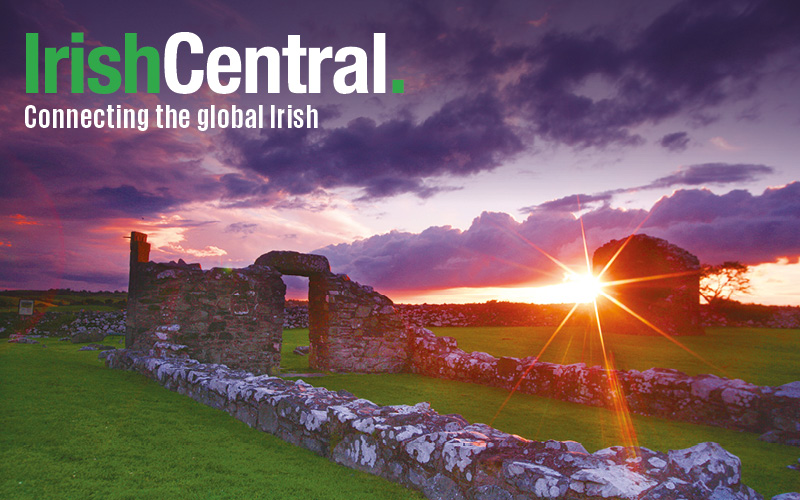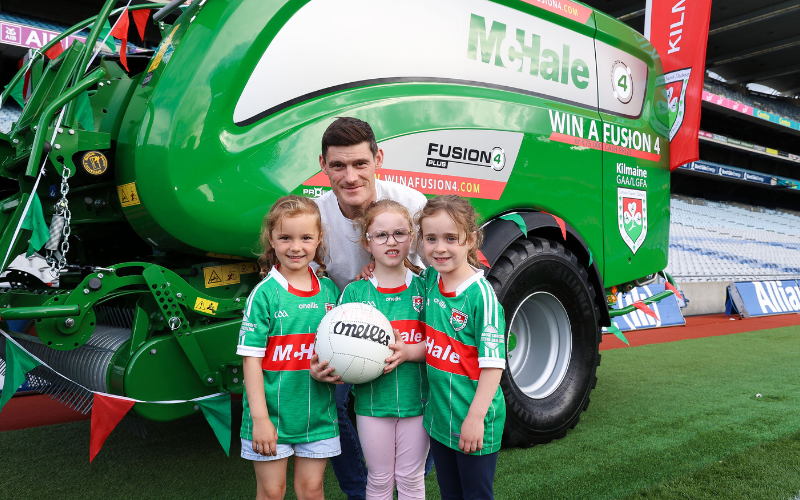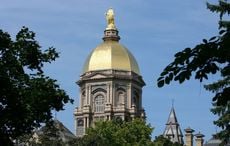| Illustration by Caty Bartholomew |
I was asked a question this week in Durty Nellie’s in Bunratty about exactly how we native Irish regard visiting Irish Americans, and it took me three swigs of my coffee (too early in the day for anything stronger!) to digest all the parameters of the query and to answer it to the best of my ability and totally honestly.
I know the topic is one which arises here more than rarely but, frankly, I had never thought about it before in any depth at all.
It is relevant that the query came from the Irish American sitting at the next table with his wife. In the way things thankfully happen in Clare we struck up a casual conversation which began, as always here, with the weather and then traveled on from there.
Within minutes I learned that he was an O’Sullivan from Illinois, had never visited Ireland before, was a mechanical engineer with his own business, now transferred to his eldest son, that he had researched his Irish roots many years ago and learned his ancestors left Cork during the Famine and settled initially in Boston.
His wife was Italian and they had three sons altogether. They had visited her Italy three years ago but this was the first trip to Ireland.
They were returning home in three days after having thoroughly enjoyed themselves overall. He had been pleasantly surprised at feeling somehow at home the instant his feet touched Irish soil.
His biggest negative of the trip, he said, was caused by several times overhearing themselves being called “Yanks” in what he thought was a somewhat reductive way, especially by taximen and others in the service zone. What did we really think about Irish Americans like himself?
It is equally relevant that he was of my generation, looked tanned and fit and well, was an extremely courteous and well-spoken gentleman, was about twice my size without being obese at all, was smartly dressed in much brighter clothing than I or my ilk would normally wear. His new tweed hat on the table beside him, obviously bought in Bunratty, was also a hat of many colors.
He spoke naturally two or three points on the volume scale higher than my responses. He was typical enough of the thousands of visiting Irish Americans I’ve met in the West down the decades.
He was good company to meet casually in a Clare bar. And he was the very first to ask me what we natives really think about Irish Americans. Do we really regard them as our own or are they simply Yanks?
I told him my name and background and my trade first, and then I told him that we use the term Yanks in relation to about all Irish Americans in a warmly welcoming and affectionate way. There is no negative at all.
We use it with our naturally sharp tongues in the same way as we affectionately but descriptively term Dubliners as jackeens and they call us culchies. I told him that fundamentally we are very proud of our Yanks.
They were our brightest and bravest and toughest to survive the Famine and the coffin ships and all the hardships of early emigration in a harsh era and to have climbed up from their beginnings in Ellis Island and the other arrival points to have had such a massive and positive impact on their New World.
I said we constantly rejoice that no other small, impoverished island has contributed so much to the greatest economy in the world, right up to the White House.
I told him that about every Irish family owes a huge debt to its Yanks both nowadays and down the centuries for the way in which they “claimed out” and adopted and supported the family generations that came after them. They gave them a new start and a new life and were always there for them.
I told him how pleased we always are when our own Yanks come back home on holidays and become the walking, talking icons of a mighty tribal survival against the odds. I told him we were equally happy and fulfilled when we meet the visiting Yanks of neighboring families and communities. And we are thrilled in a subtle way to meet Yanks who have no Irish blood in them at all and who are frequently quite blown away by the width and depth and richness of our culture.
I told him that we are often amazed at the fact that Yanks are so open and frank about their lifestyles and situations, and so often that makes us ashamed of how inhibited we usually are in speaking openly about ourselves.
I said, “Ye are a breath of fresh air when ye come over and we need that.”
And I said, “There are many millions more of ye than there are of us here at home, and with such a small genetic stock to draw from sure we are all cousins at this stage, even the MacConnells from the North and the O’Sullivans from Cork are probably about 33rd cousins 10 times removed both by geography and wide water.”
I told him to be proud to be called a Yank when in Ireland.
And do you know what else I told him which I hope was useful during his final days here?
I told him that there are still, sadly, just a few natives who try to take advantage of visiting Yanks by engaging them in conversation in bars and cafes in the hope of getting a few free drinks in return for their unmitigated blarneyed bull. I told him to, yes, buy such stage Irishmen just one drink and then ensure that he bought no more, not even water, until the native stood him a round in return. I hope he did not encounter such a character in the days and hours after we parted in Bunratty.
I think the couple clearly understood in the end that, though I did not say it directly lest it be over the top (and we are inhibited that way) that we love our Yanks and are very proud of them. And that is the truth.




Comments